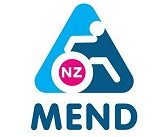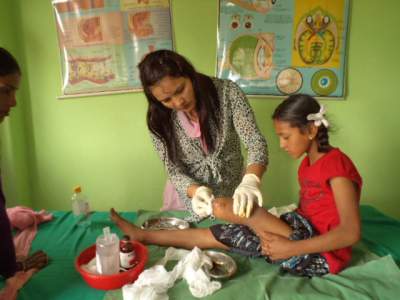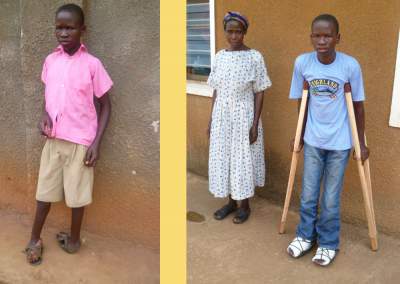“To help children and adults, who are challenged with disability and poverty, become mobile, independent and trained in skills that can lead to employment…and so achieve dignity in their communities.”
MEND was set up by Rob Buchanan in 1991 and is a non-profit organisation and registered charity. Rob manages MEND from his travel backpack and the deck of his trusty yacht in New Zealand’s Bay of Islands.
Read about the day Rob started MEND here.
He is joined by a dedicated team of volunteers, based all around the world, along with the local Centres we have set up and the organisations we have partnered with in Asia and Africa.
As a small aid agency, we operate on a shoestring budget with no fancy offices, vehicles, or big salaries. Our offices are laptops and smartphones so the majority of your donations go straight to the beneficiaries.
Watch how MEND Transforms Lives
Our Centres and Partners:
We have set up centres in Asia and Africa run by our teams, many of them former patients. They run clinics for the locals and also health camps in isolated areas.
Donations play a big part in paying for surgeries and rehabilitation at our centres.
We focus on encouraging independence for each centre so they can run effective medical, rehabilitation, and education programmes for their members. This improves the mobility, independence, and incomes of their members and benefits the whole community.
This accountability ensures our centres’ long-term sustainability and progress. We only support teams who adopt zero tolerance of theft and abuse of our funds.
We also partner with charitable organisations who share our vision. The Katalemwa Cheshire Home in Uganda is one of our close partners. We offer financial support for medical and rehabilitation care plus we access recycled mobility equipment from other countries.
We are always on the lookout for hearing aids, prosthetic limbs and parts, and wheelchairs.
Please contact us if you have any medical equipment you would like to donate.
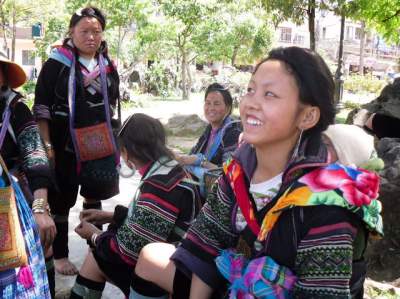
The Effects of Poverty
“Many of the people we help have been immobile and isolated at home their whole lives”
Our centres see many children and youth with disabilities that are treatable if identified very early on, particularly as babies. After the age of about 20, corrective surgery is far less effective.
We also see many disabilities caused by malnutrition, accidents, and cerebral palsy that are not treated immediately. This is due to poverty and the low value placed on community members with disabilities.
Through a combination of poverty and remoteness, many people around the world have no access to medical care.
Often the solution to disability is simple from a hearing aid to straightforward surgery or a comfortable-fitting prosthetic. Our members’ lives are then transformed from the challenges of disability to independence.
Common Disabilities
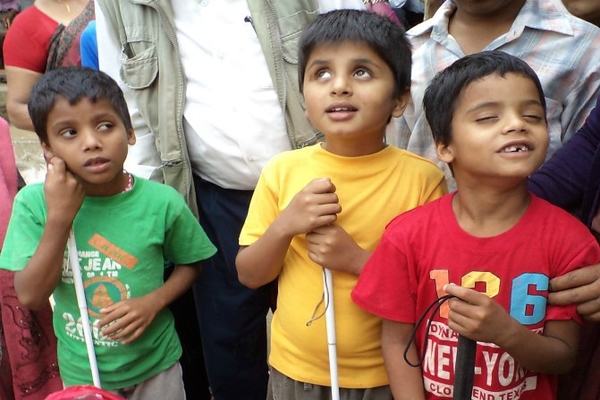
Families often must care for their family members with disabilities, with little help from government agencies. So that’s where we come in. Here are some of the disabilities we commonly encounter.
Stroke: It is difficult to believe but we treat babies who have suffered strokes, especially in Africa. This can be caused by undernutrition and a low birth rate, sadly caused by poverty.
Limb Loss: In developing countries, with poorly maintained infrastructures, we see too many cases of children losing limbs from accidental electrocution. Often they’re climbing trees to pick fruit and don’t see the live electrical wires. Electrocution causes severe burns and loss of limbs.
Prosthetics: When Rob started MEND in the 1990’s he made prosthetic legs out of recycled tin cans! That was a low-budget start. Today we use light and flexible prosthetics sourced from around the world.
Recycling: Many of the prosthetics are donated and second-hand. Our Centres are very skilled in recycling these prosthetics.
Please contact us if you have a prosthetic you would like to donate.
Club foot can be easily treated after birth, with plaster and physiotherapy, so that normal movement is restored. But we see many cases of untreated adults walking poorly all their lives.
Burns are common in Asia and Africa where cooking is done over open fires. Children can fall into these fires. If their wounds are not treated correctly they can develop scar tissue that causes permanent restriction of their movement.
Cataracts are all too common, but they require a simple operation. So we organise this for our members.
Hearing Loss: We provide hearing aids and either use recycled ones or buy low-budget but very effective hearing aids from China.
Many of our members are too poor to afford batteries so we ensure spare batteries are available.
Please contact us if you can donate hearing aids.
So We Step In…
MEND organises medical equipment, hearing aids, surgery, transport to the hospital, accommodation, rehabilitation, physiotherapy, wheelchairs, and limb prosthetics. To name a few of the many complex medical interventions needed by our members.
We don’t stop there, the next step is to organise education for the children and work or small business opportunities for the adults. Our members can then join their communities with pride and dignity.
Read about our latest projects here.
Join the Action!
To sustain our Centres and their programmes we rely on donations and grants.
We are also exploring new ways supporters can invest in sustainable programmes such as micro-loan schemes for training and small business loans.
Our members can start their own businesses and achieve financial independence. These loans are repaid over manageable periods so the funds can be reused by others needing start-up capital.
